Submitted by WA Contents
Frankie Pappas built "incredibly" narrow brick residence that disappears in Waterberg mountains
South Africa Architecture News - Jul 20, 2020 - 15:17 12704 views
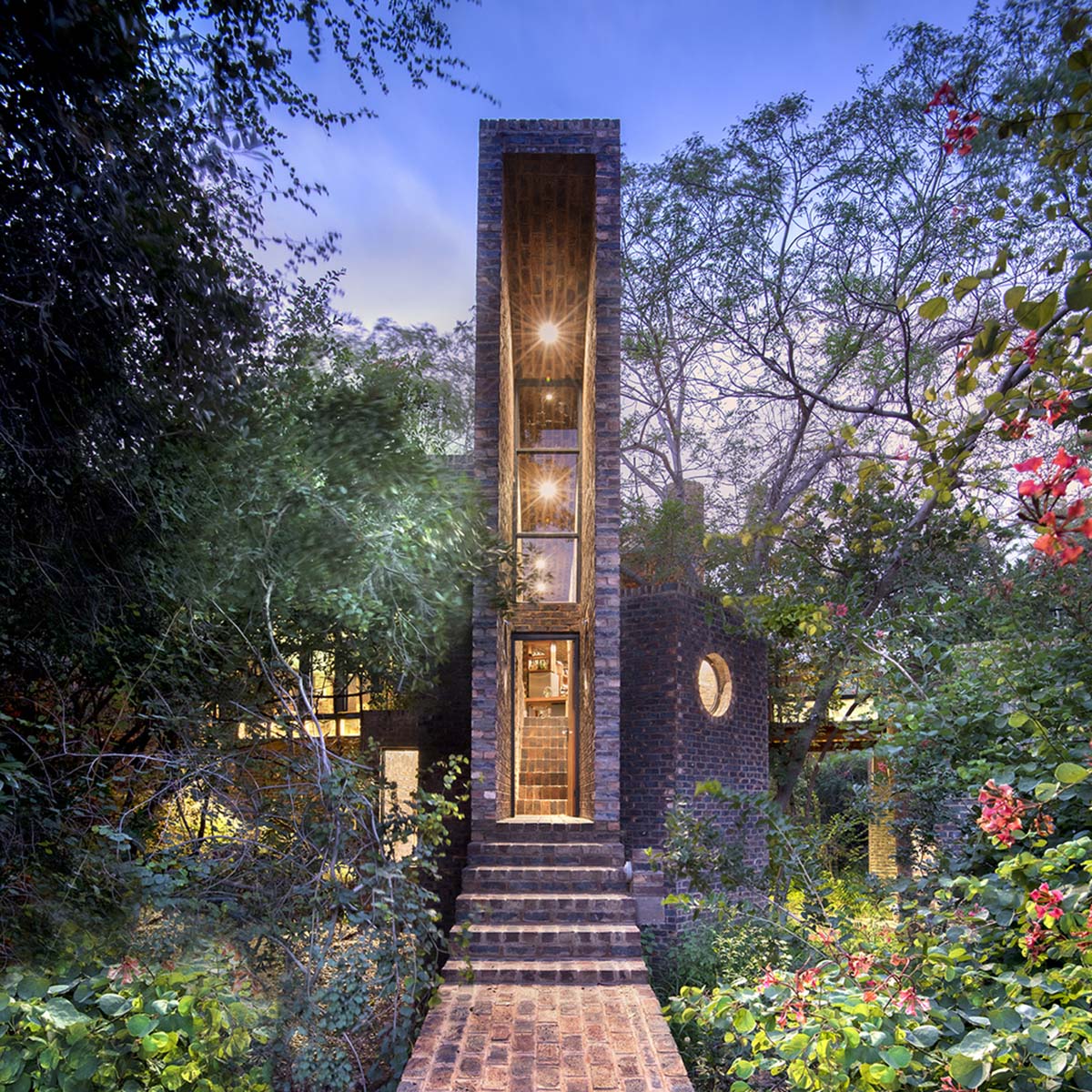
Frankie Pappas has built a private residence that disappears in a nature reserve in the Waterberg mountains of South Africa.
Named House of the Big Arch, the 120-square-metre residence was designed like branches of trees and distributed with narrow and brick protrusions within the nature.
Designed for an elderly couple, whose love and knowledge of the bushveld, the building is only 3.3 meters (11 feet) wide and is described by the architect as "an incredibly thin building" and thanks to its thin size, they never harmed any tree on the site.
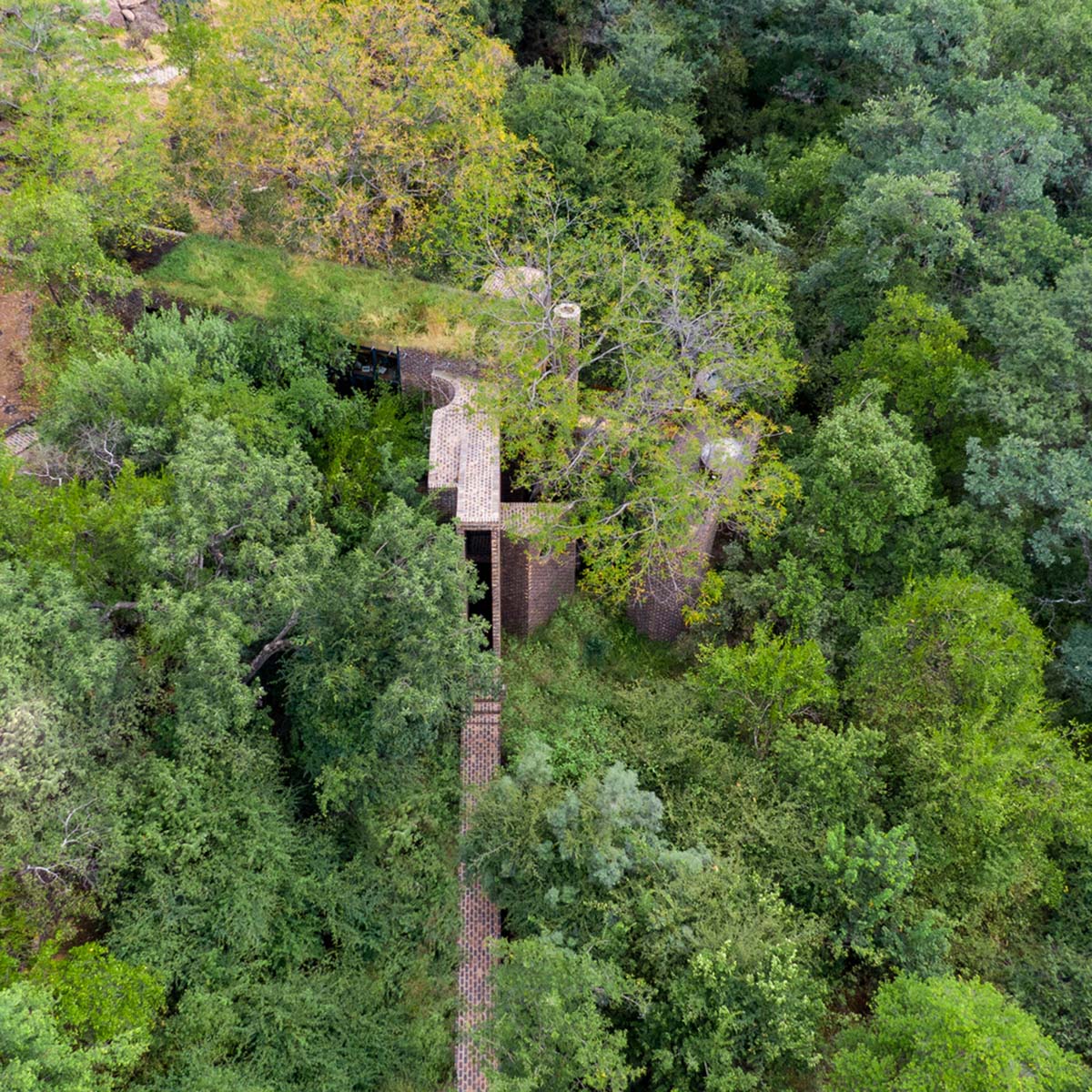
"This allowed us to thread the building through the tree-scape any funky bulges and protrusions in the plan of the building were dictated by where trees allowed us to build in order to further ensure that no tree would be harmed, we laser-scanned the entire site we then converted this information into a digital 3D model so that we could see every tree and every branch when making critical design decisions we were in essence designing this building in a digital forest," said Frankie Pappas.
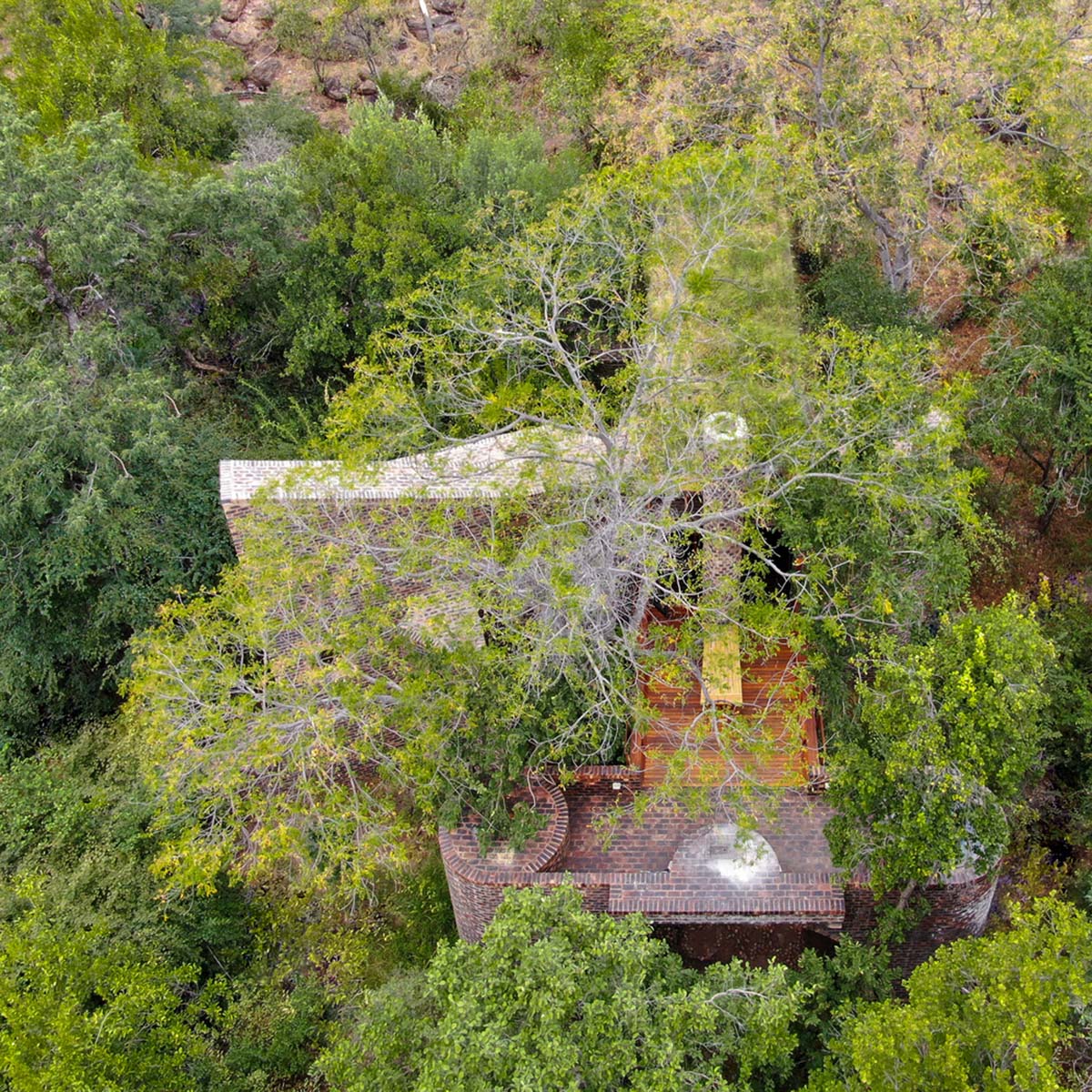
This building occupies a unique place in a nature reserve in the Waterberg mountains of South Africa; a landscape of remarkable plants, inspiring cliffs, and prodigious wildlife.
The residence is described as "a home that disappears into the landscape" - which sits amongst the rocks and trees and birds. The surrounding offers animals and plants and humans equal opportunity to find shelter; that treats the bushveld with its deserved respect.
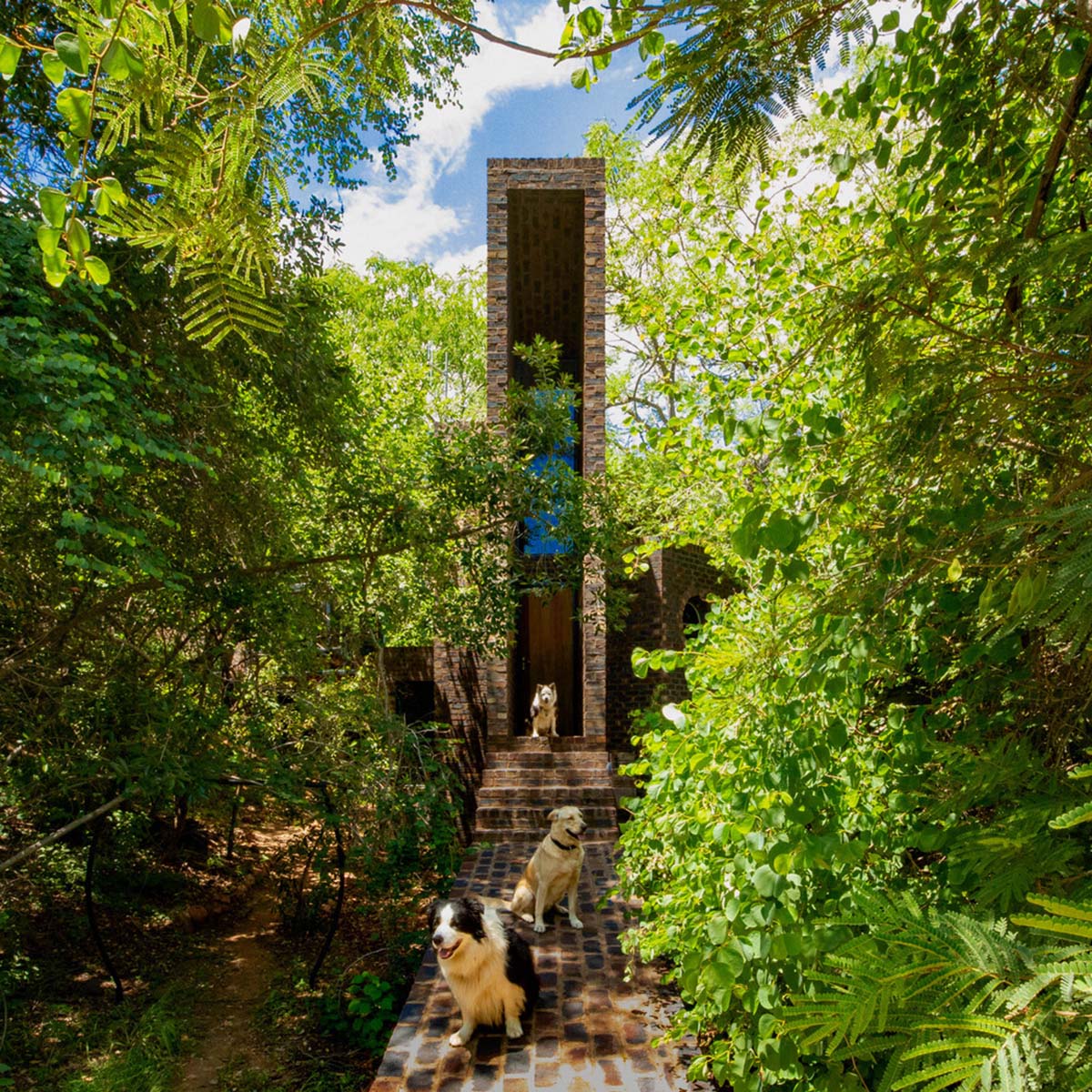
As the architect highlights, the main goal of the project was to bridge the landscape between riverine forest and sandstone cliff, whilst raising the living space into the tree canopy, amongst the abundant arboreal life the building is organised as one long thin building which slots between the forest trees.

The shapes of the additions to the central building are dictated by the position and size of the surrounding trees (not one tree was demolished during the construction of this home).
"The building makes use of a very simple set of materials which all play their part in making the building part of its landscape the most abundant material is a rough stock brick which was selected to match the site’s weathered sandstone the ‘bridge’ portions of the building are constructed from sustainably-grown timbers, whilst glass and aluminium fill in the non-structural wall," added the architect.
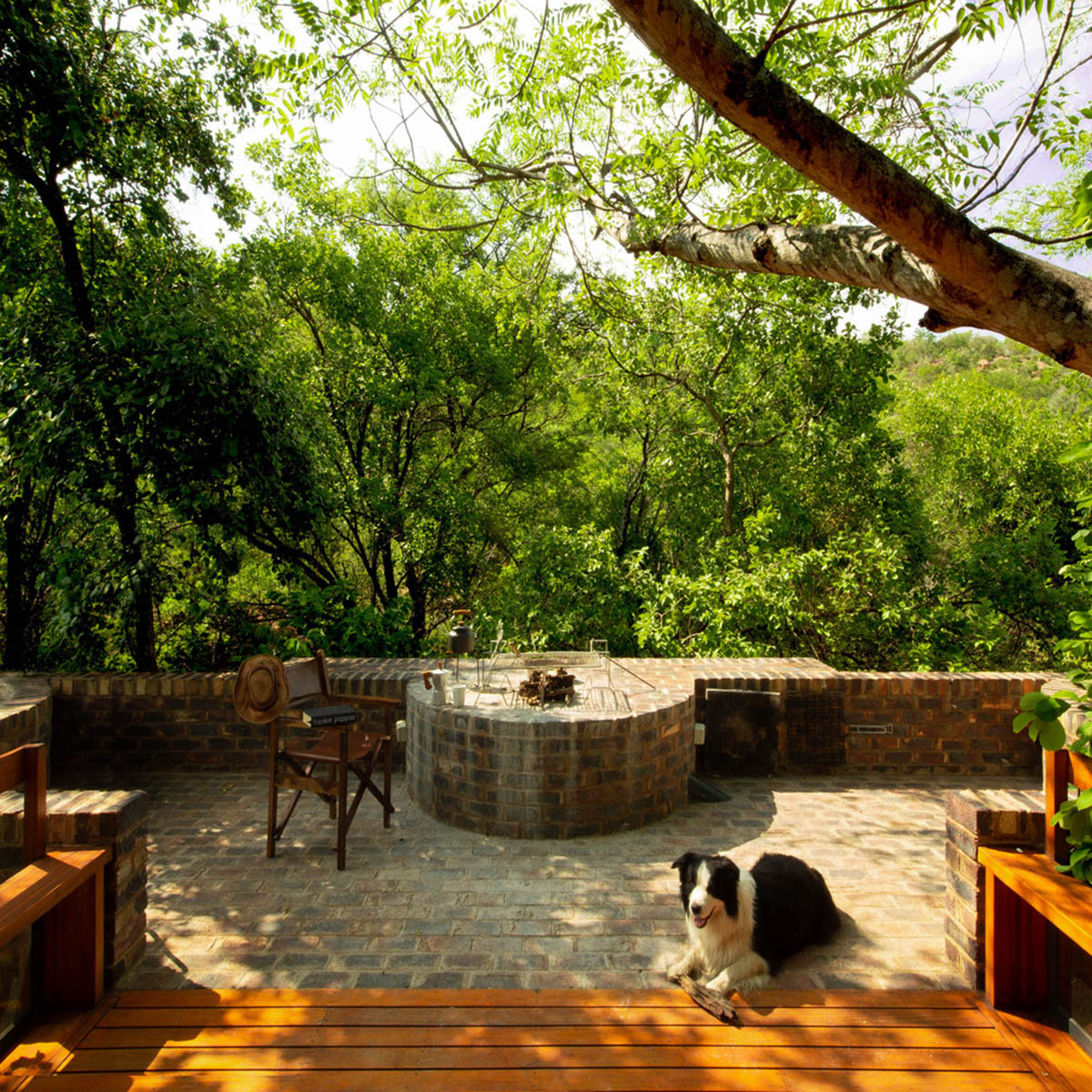
For the programme of the building, the first floor offers to its inhabitants a planted courtyard, a reclusive lounge, a sunlit dining room, a farmhouse kitchen and scullery, a tree-shaded deck, a small pool and a fireplace - around which most of the cooking and living occurs the ground floor provide yet more courtyards, a study, library and a small swing bench under the arch the cellar creates a climate conducive to curing meats, storing food supplies and ageing wines.
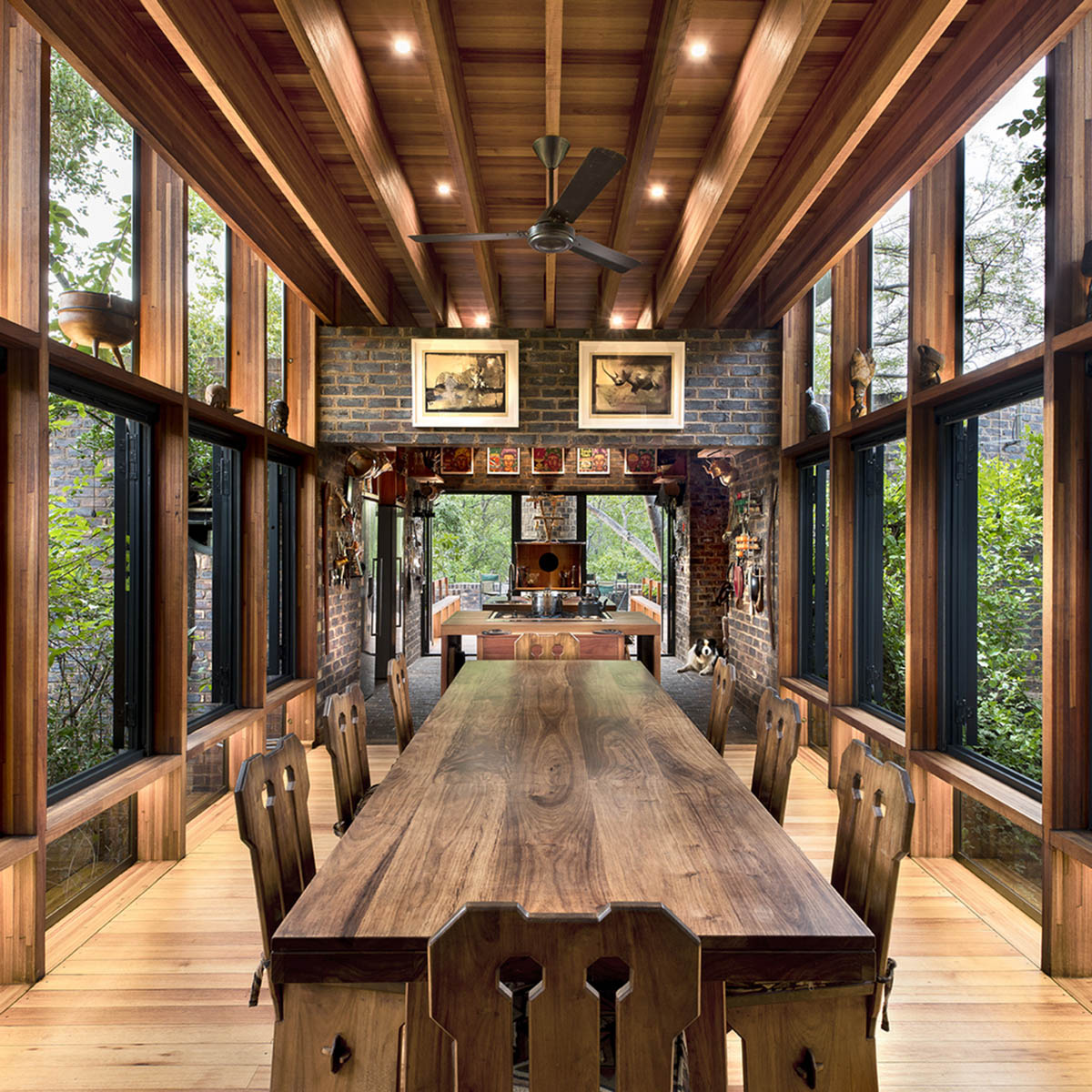
Image © Dook for Visi
"This building is a careful and direct response to this particular portion of this particular riverine forest of this particular portion of the Waterberg of this particular portion of the bushveld this architecture could exist nowhere else in the world," added the architect.

Image © Dook for Visi
The entire house is off-the-grid - completely and utterly water from the roofs is collected and filtered through the forest black- and grey water is stored and processed before being filtered by the undergrowth energy is harvested by 16-square-metre of solar panels but more important than this, is that the architecture works with its environment to create breeze and shade and comfort which allows it to have minimal energy demands.
"We cannot ever divide architecture, landscape and gardening: they are one."

Image © Dook for Visi
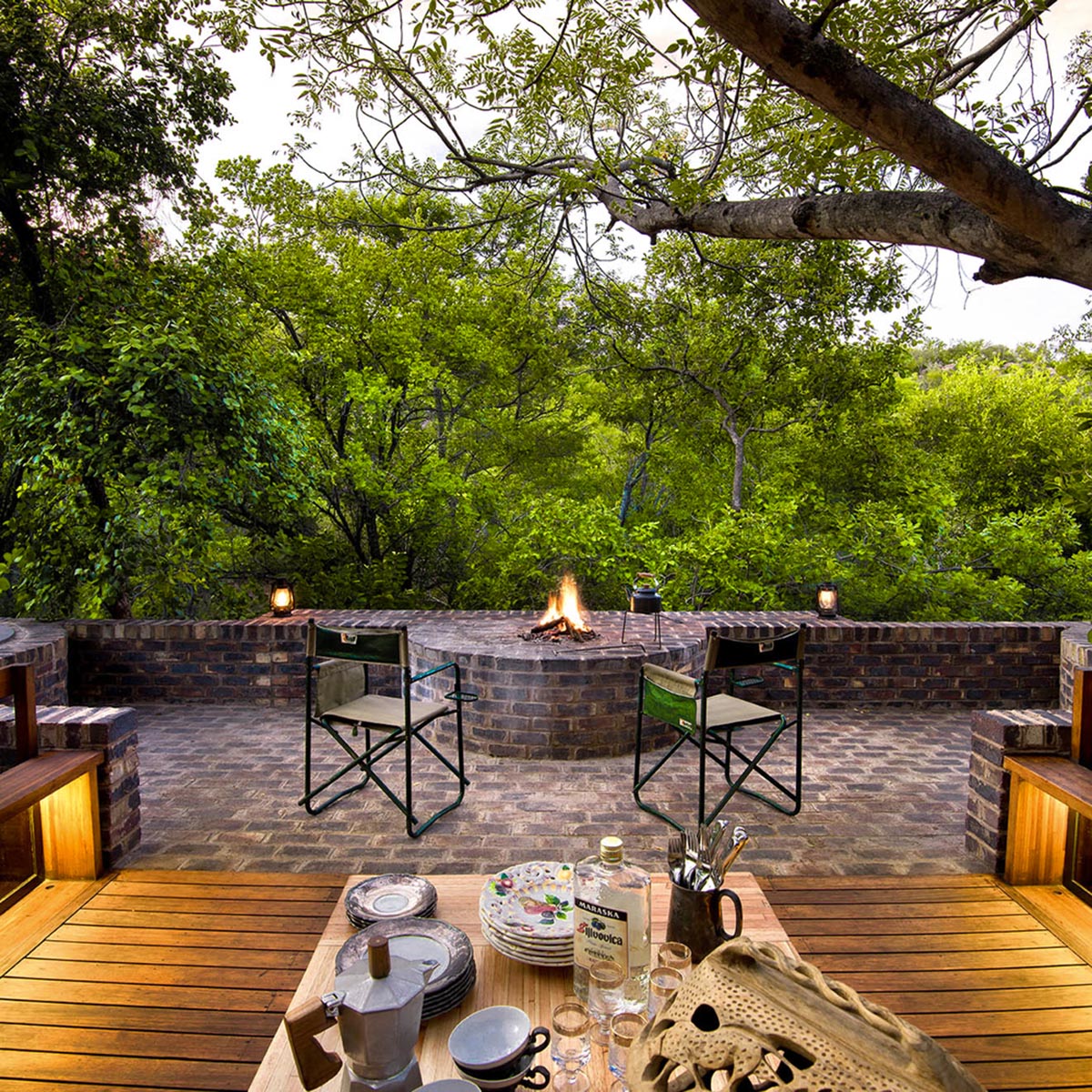
Image © Dook for Visi
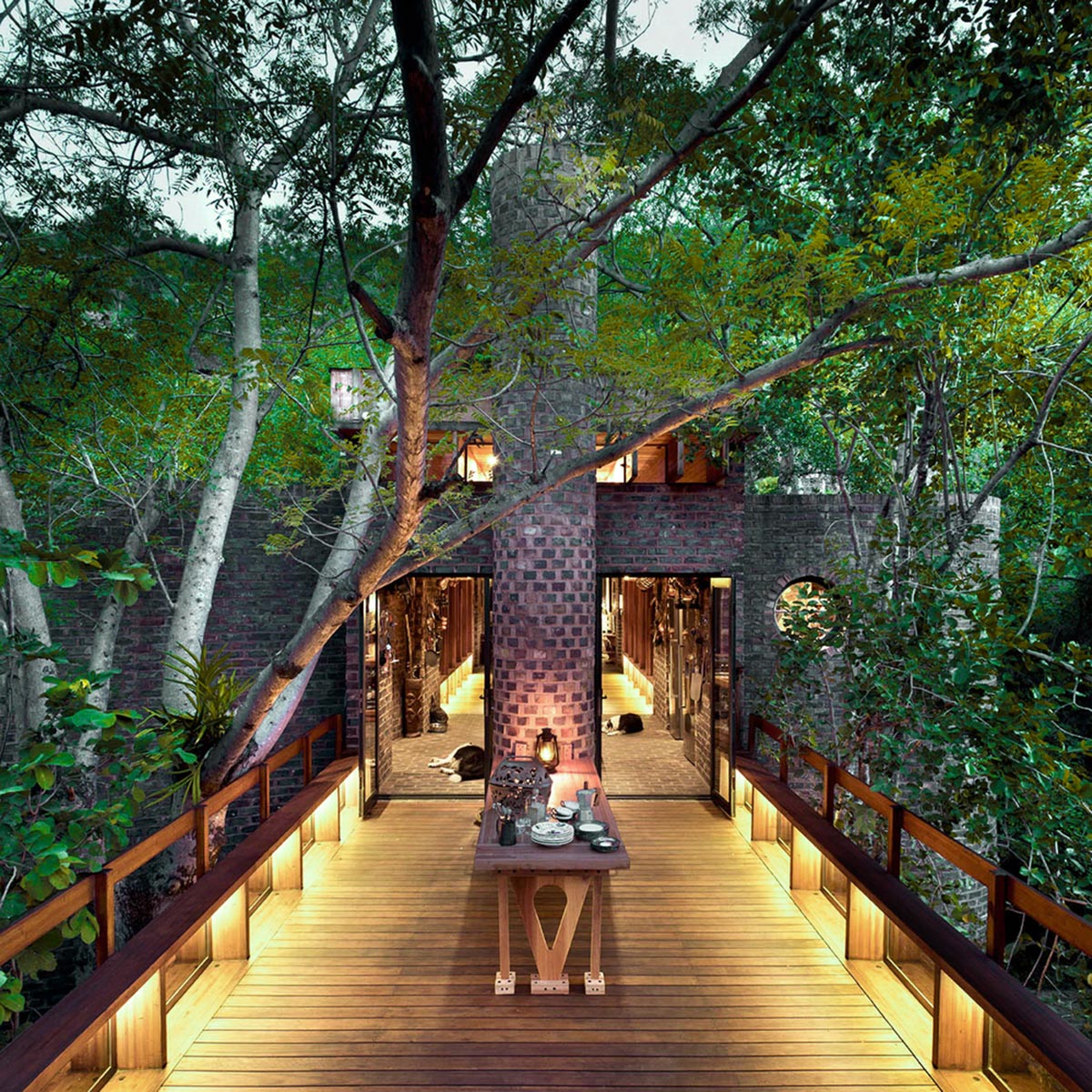
Image © Dook for Visi
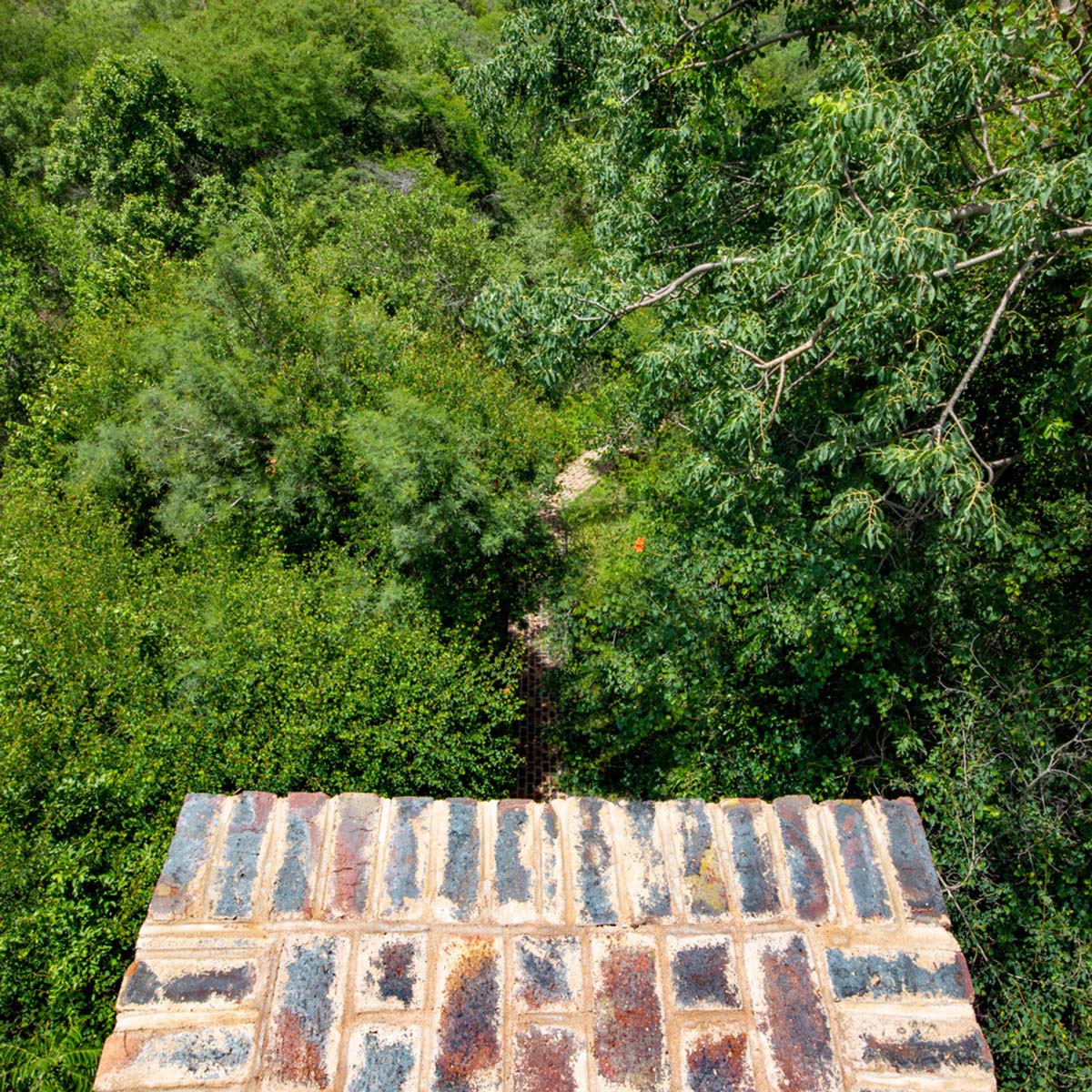

Image © Dook for Visi
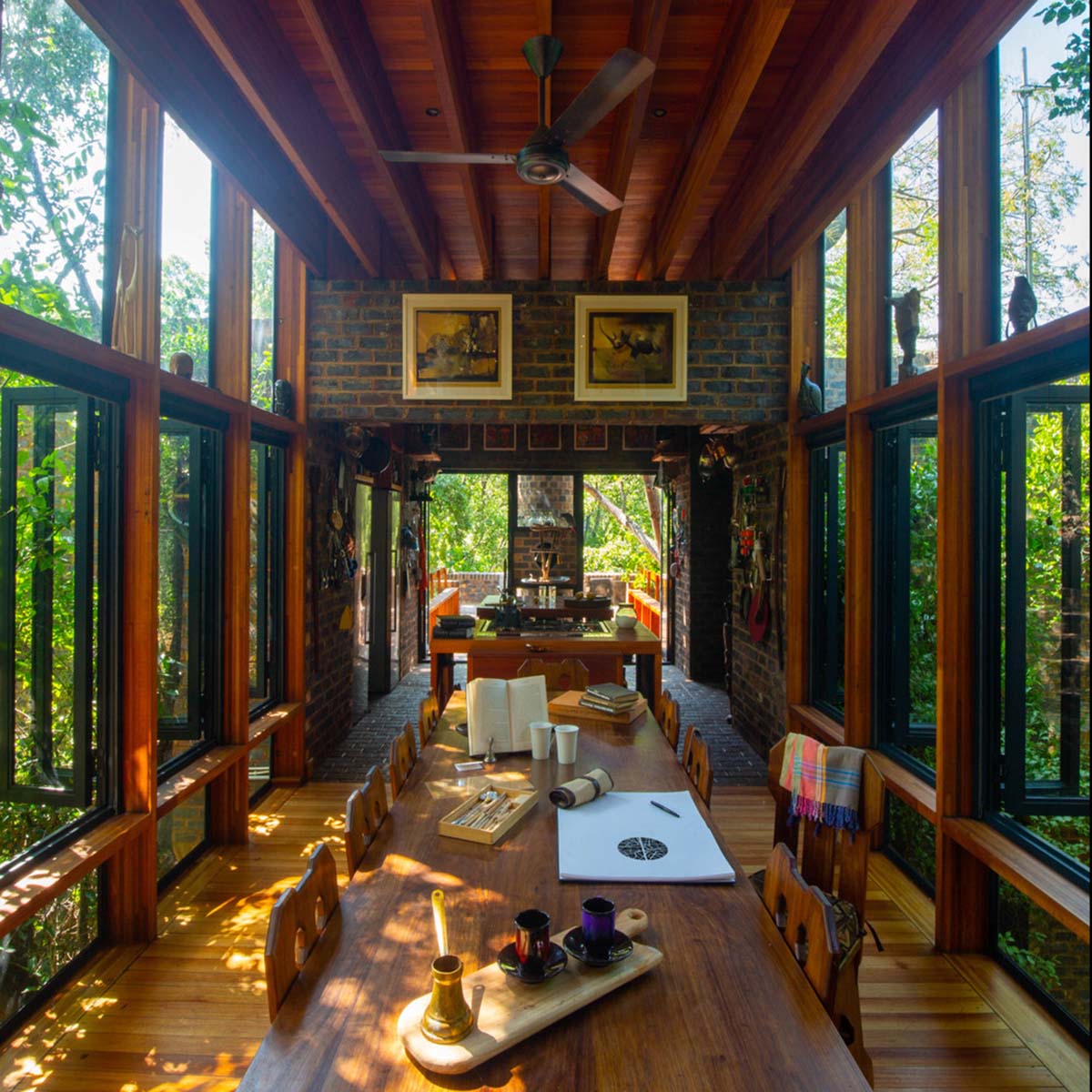
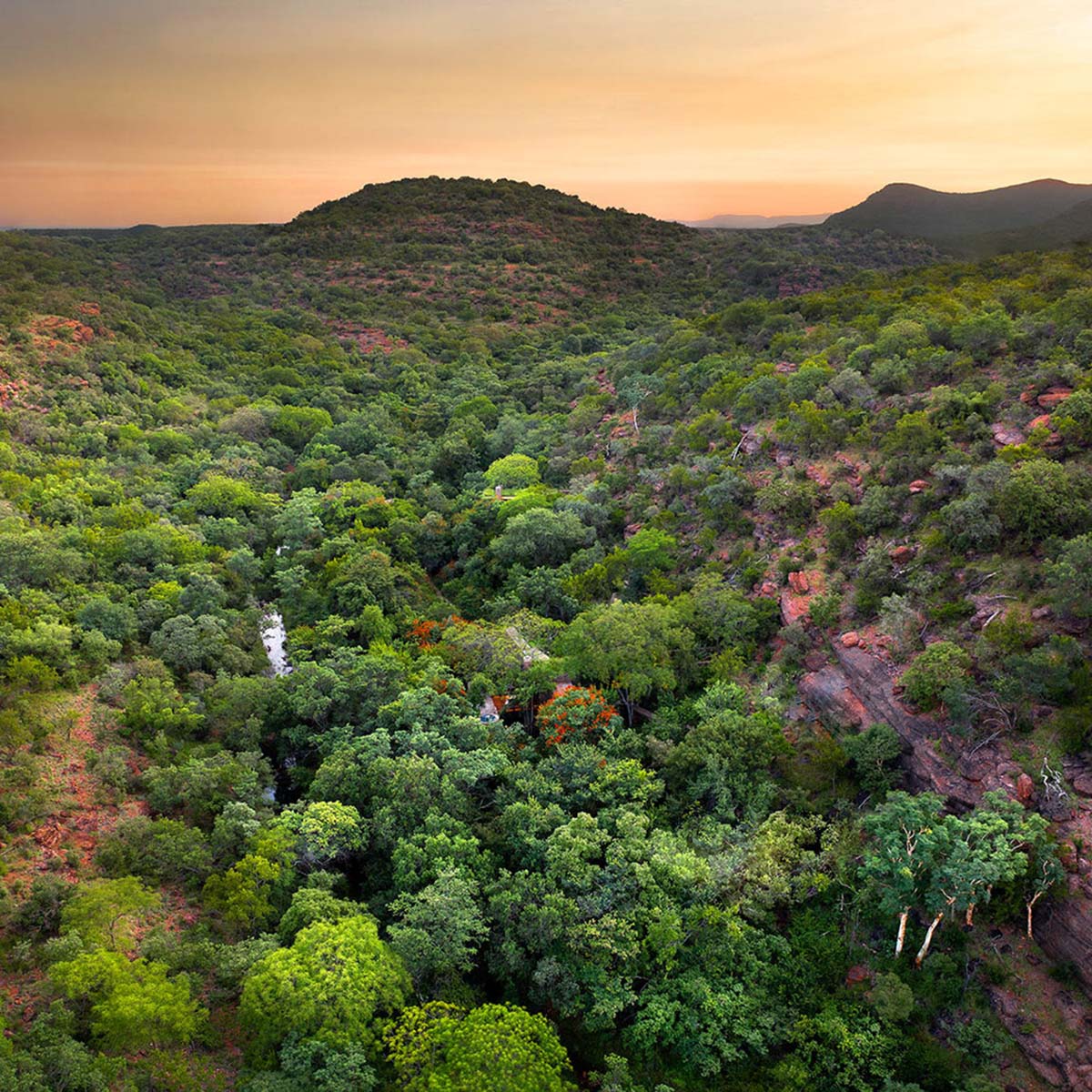
Image © Dook for Visi
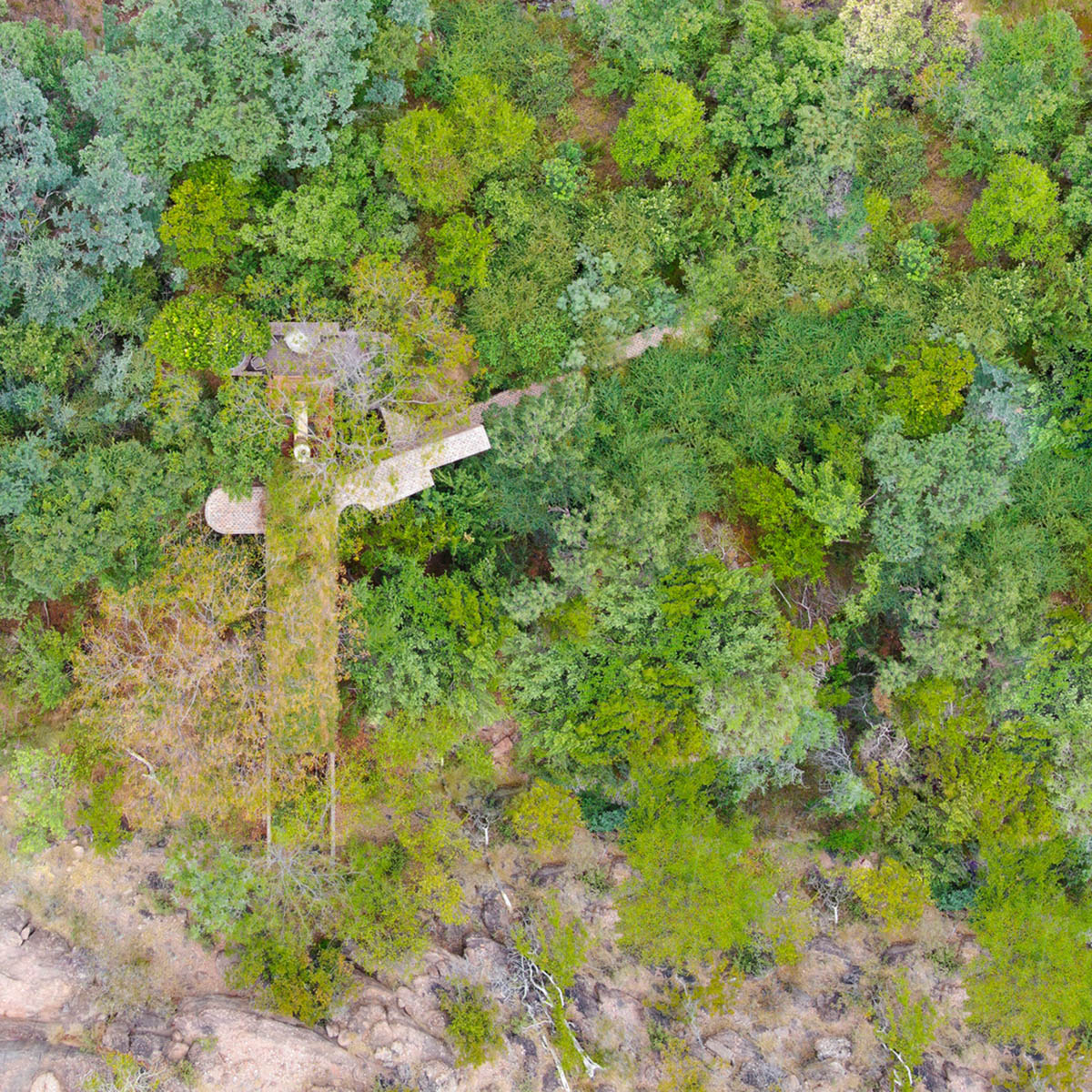

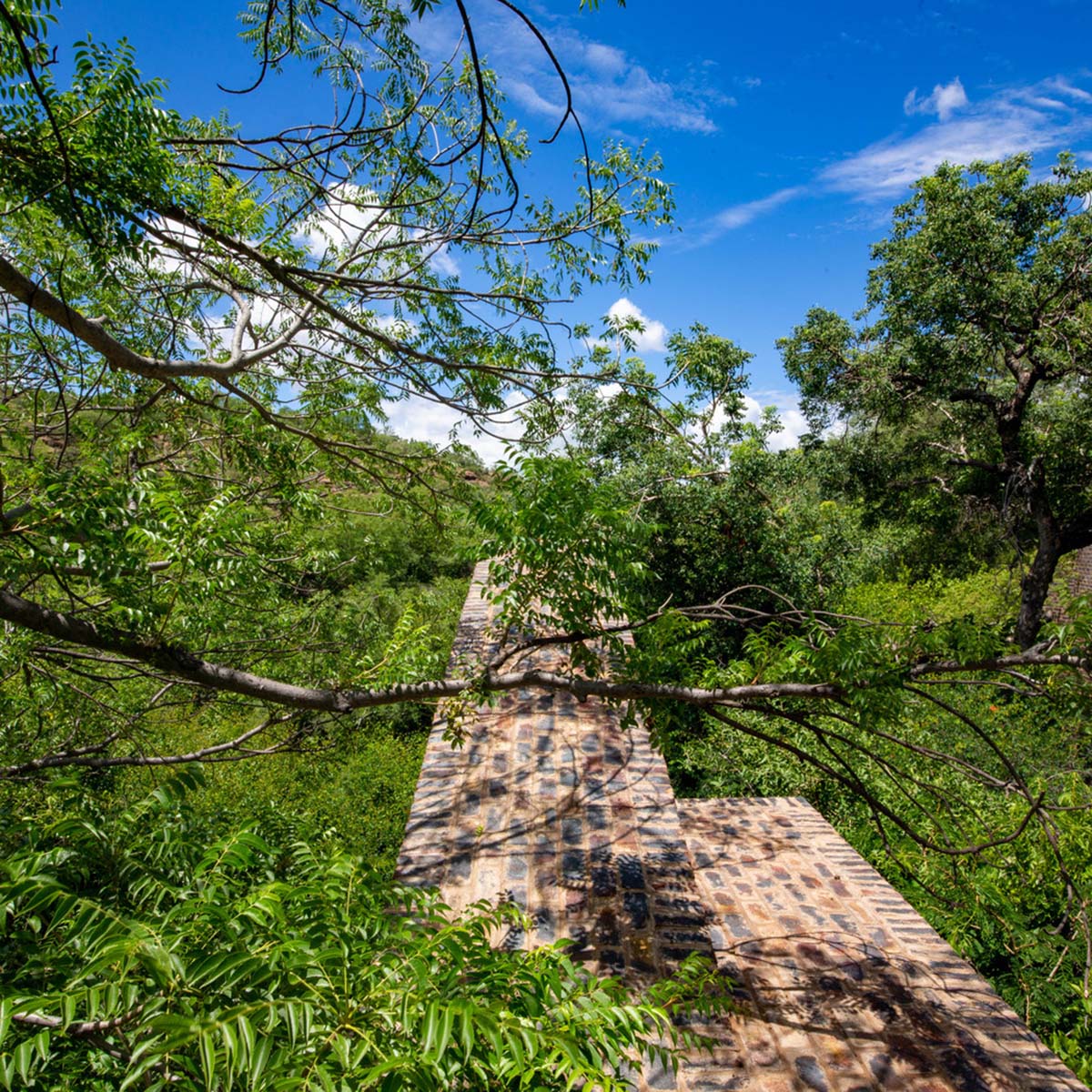

First floor plan

Basement floor plan
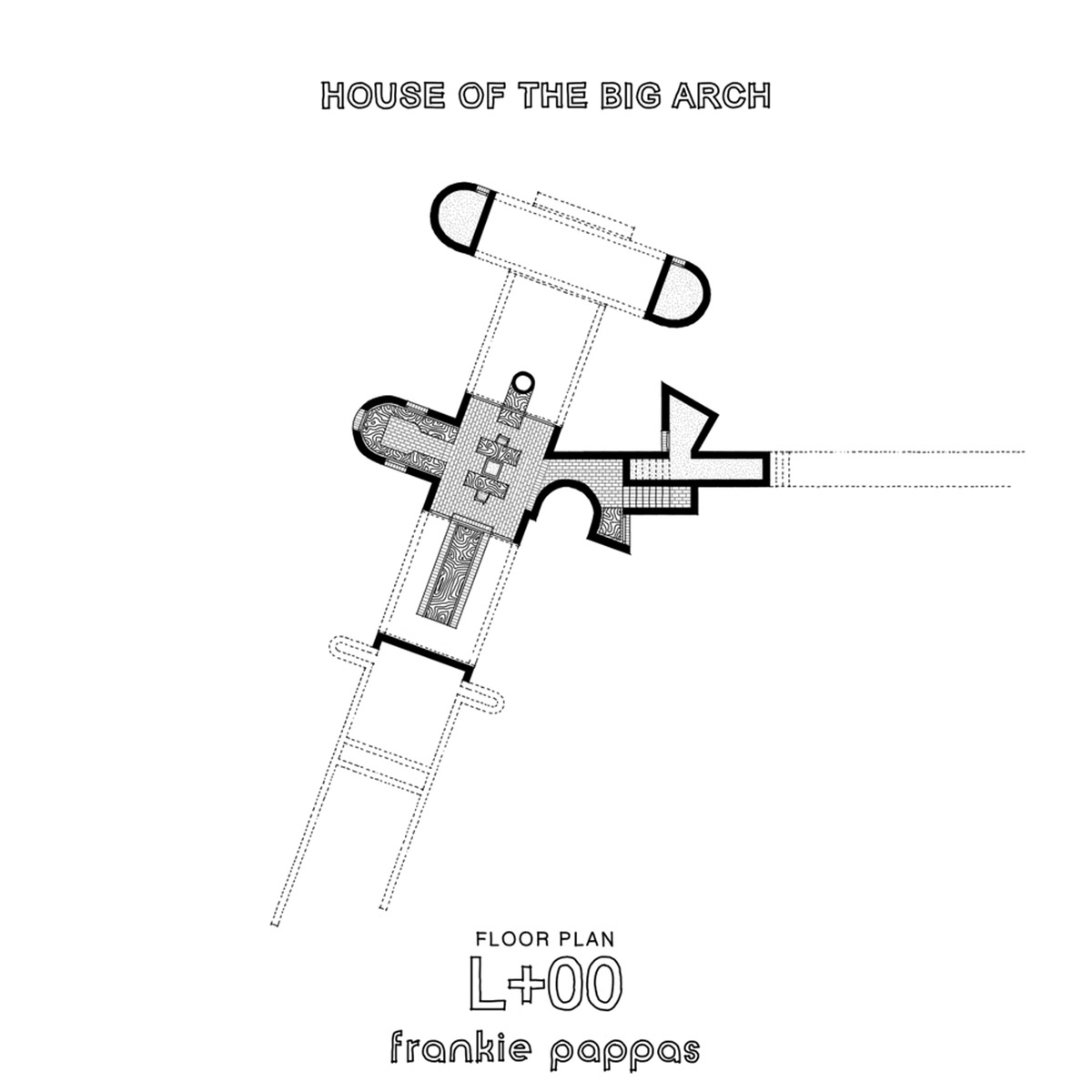
Ground floor plan
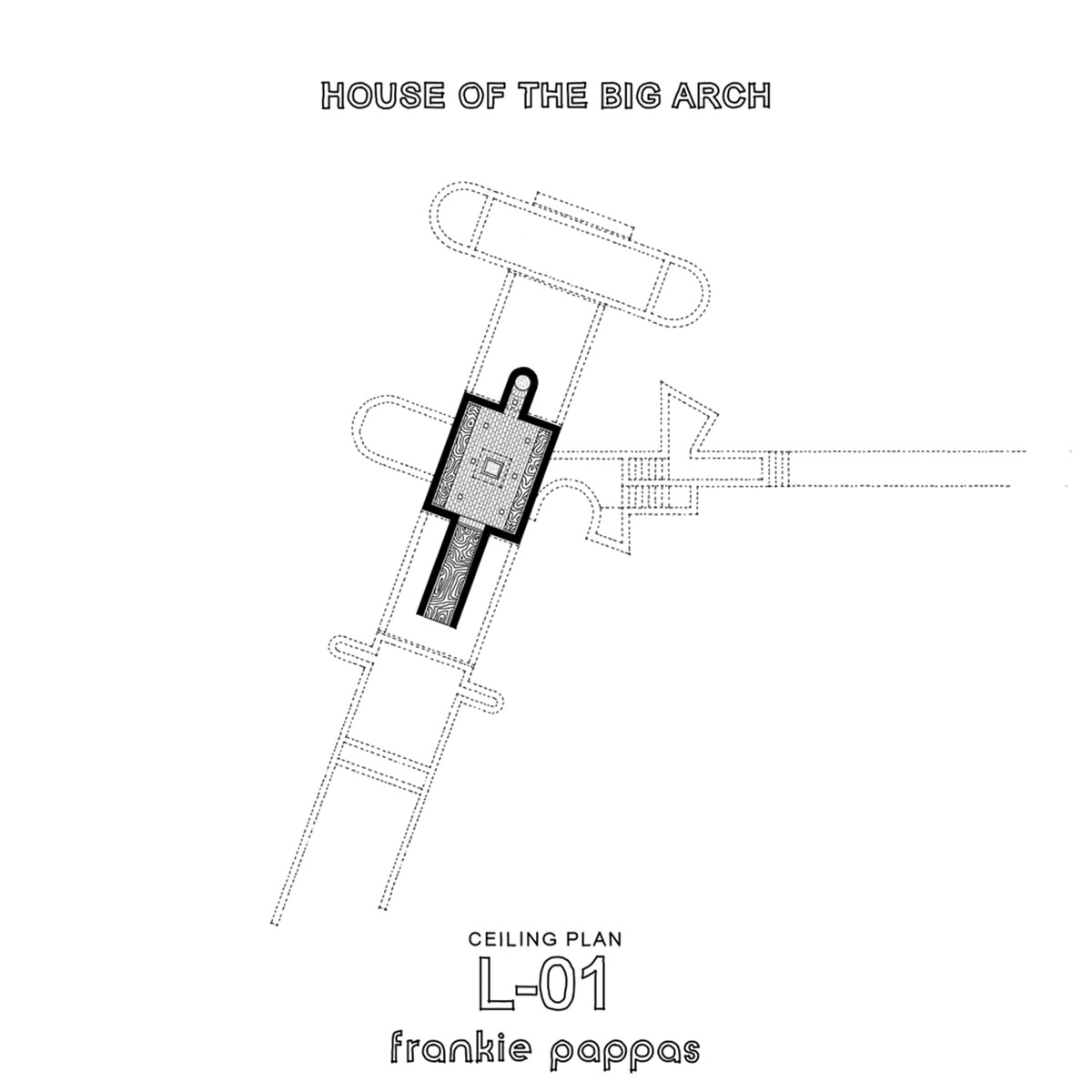
Basement ceiling plan

Ground floor reflected ceiling plan
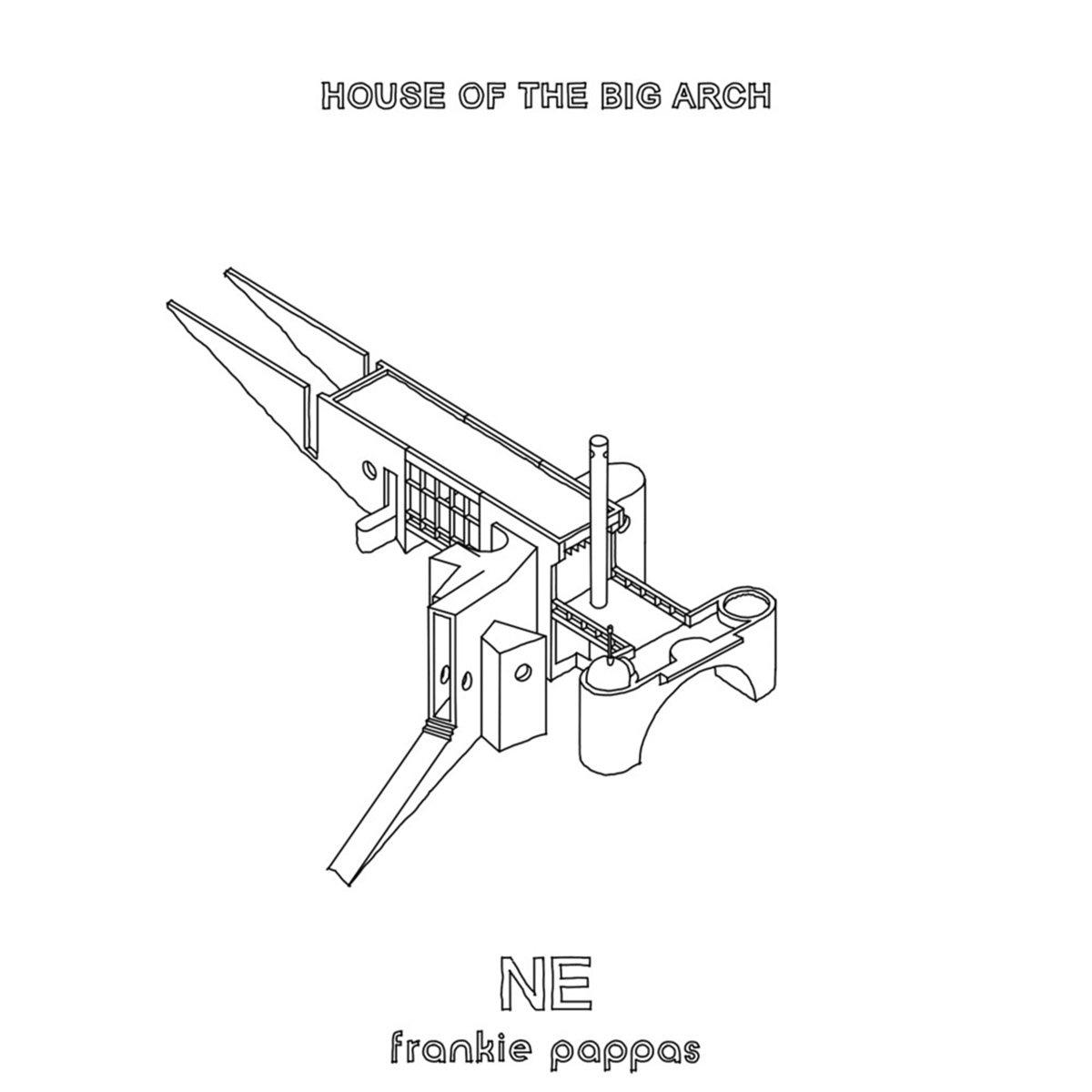
Axonometric rotation
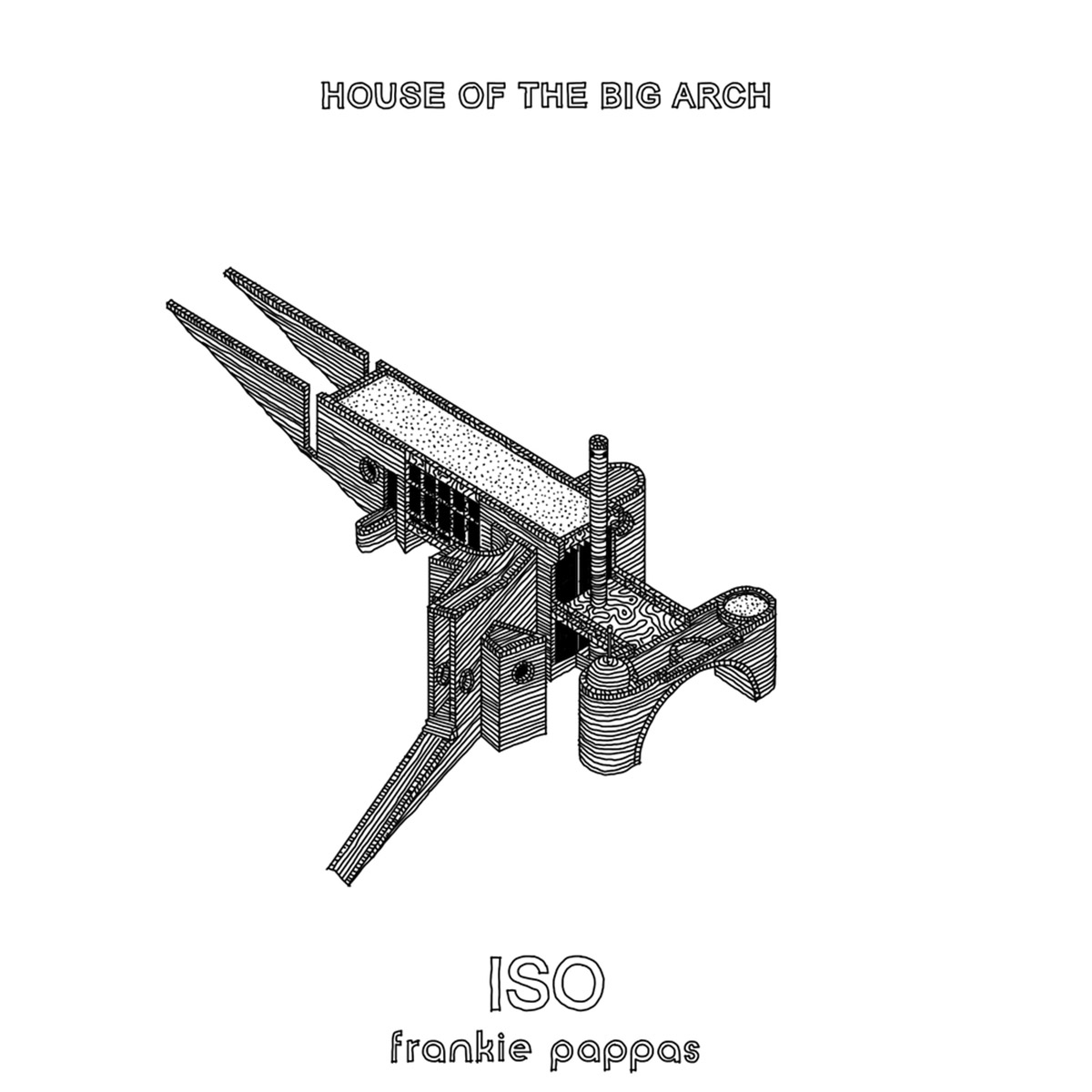
Axonometric view
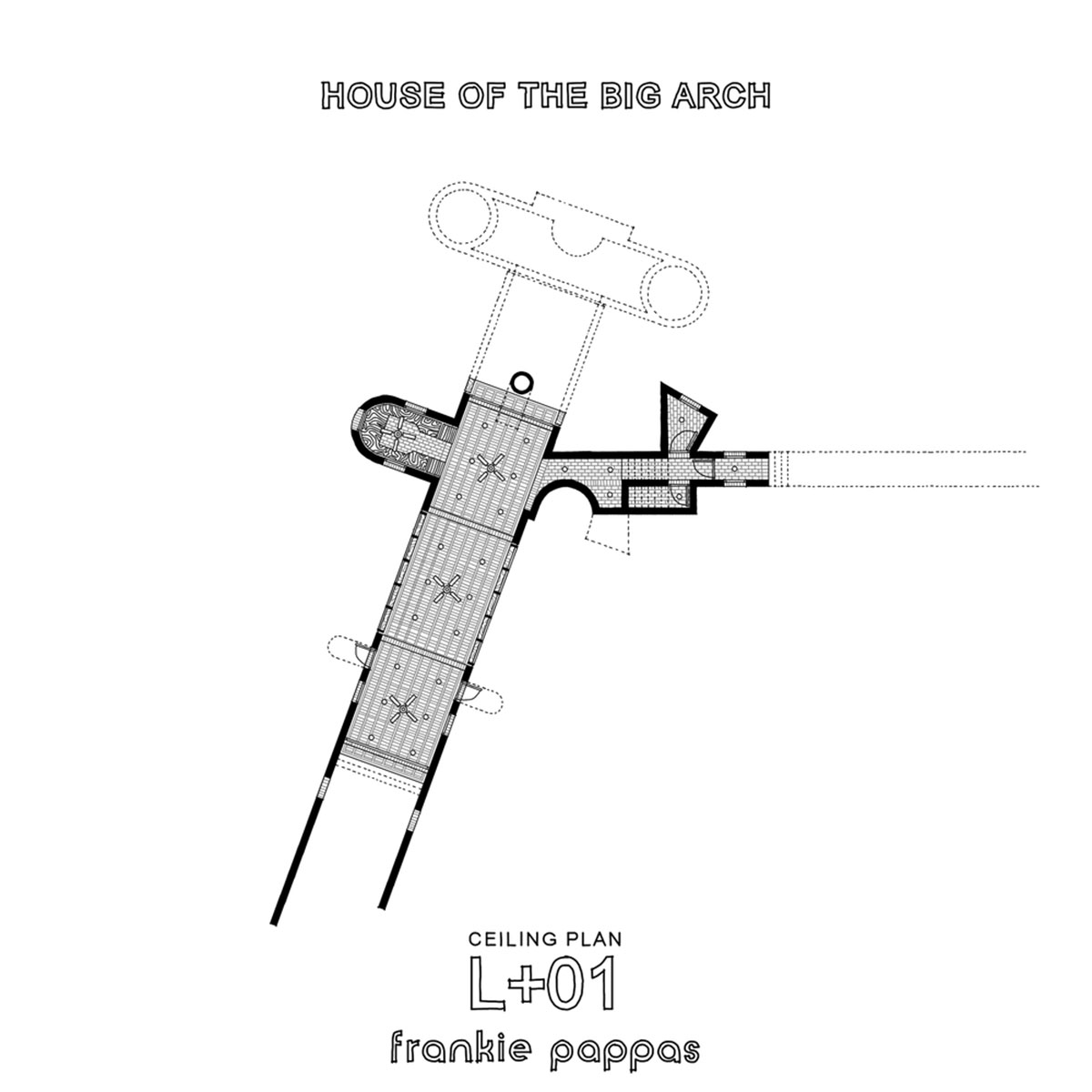
First floor reflected ceiling plan

Roof plan

Perspective

Detailed section
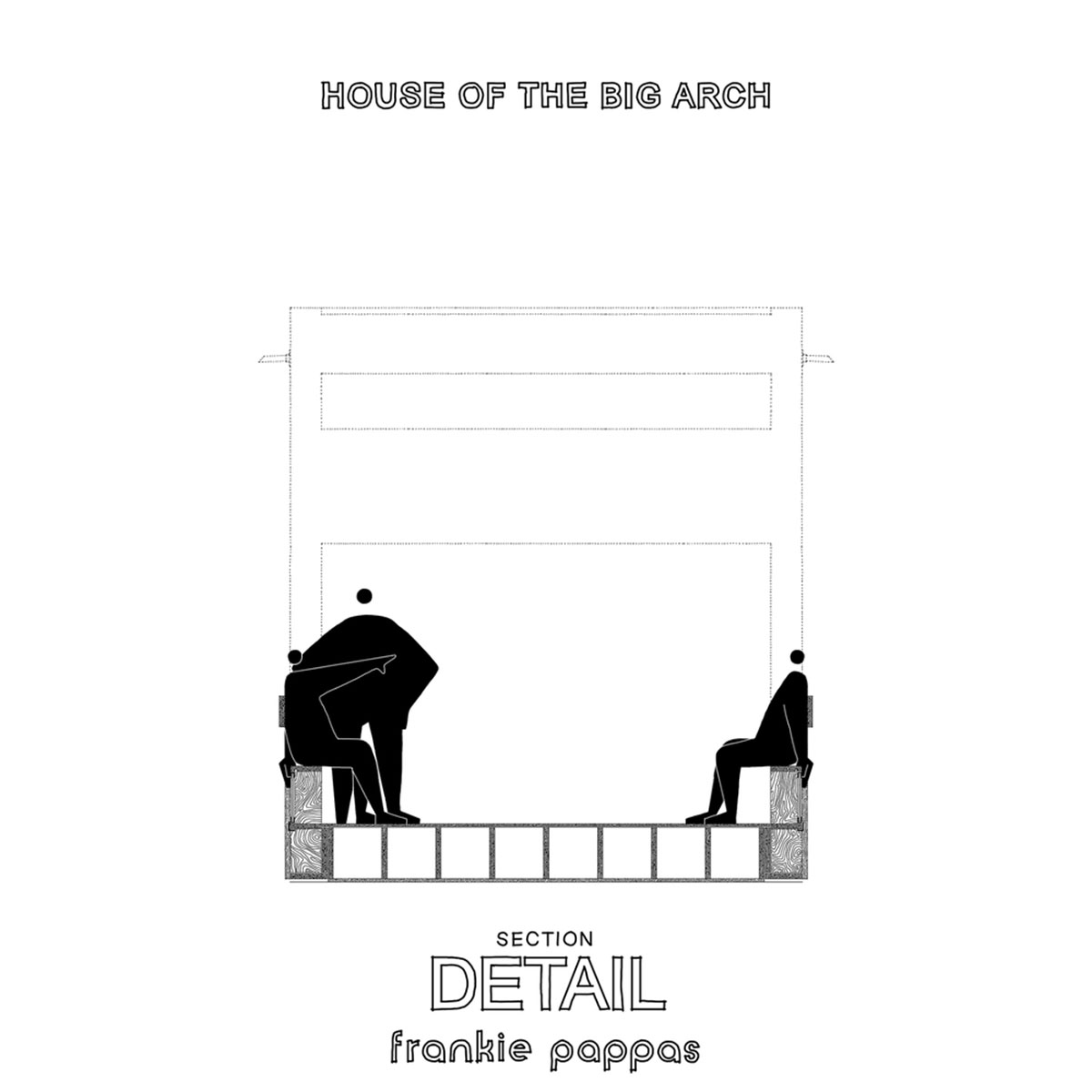
Detailed section 2

Detailed section 3
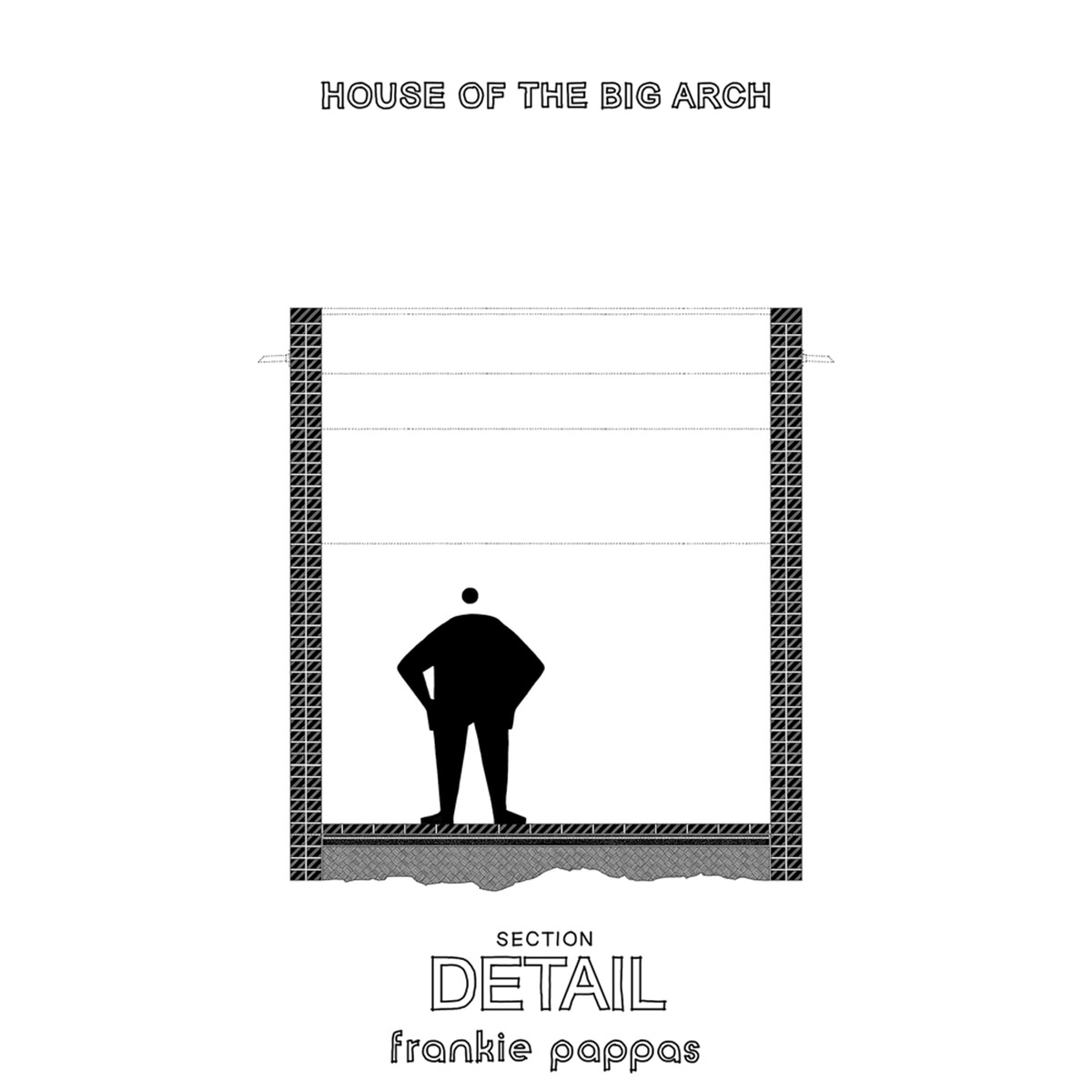
Detailed section 4
Project facts
Name: House of The Big Arch
Location: Waterberg, South Africa
Architect: Frankie Pappas
Project size: 120 sqm / 1,292 sqf
Site size: 55,000,000 sqm / 13,591 acres
Building levels: 3
Completion date: 2020
All images © Frankie Pappas unless otherwise stated.
All drawings © Frankie Pappas
> via Frankie Pappas
